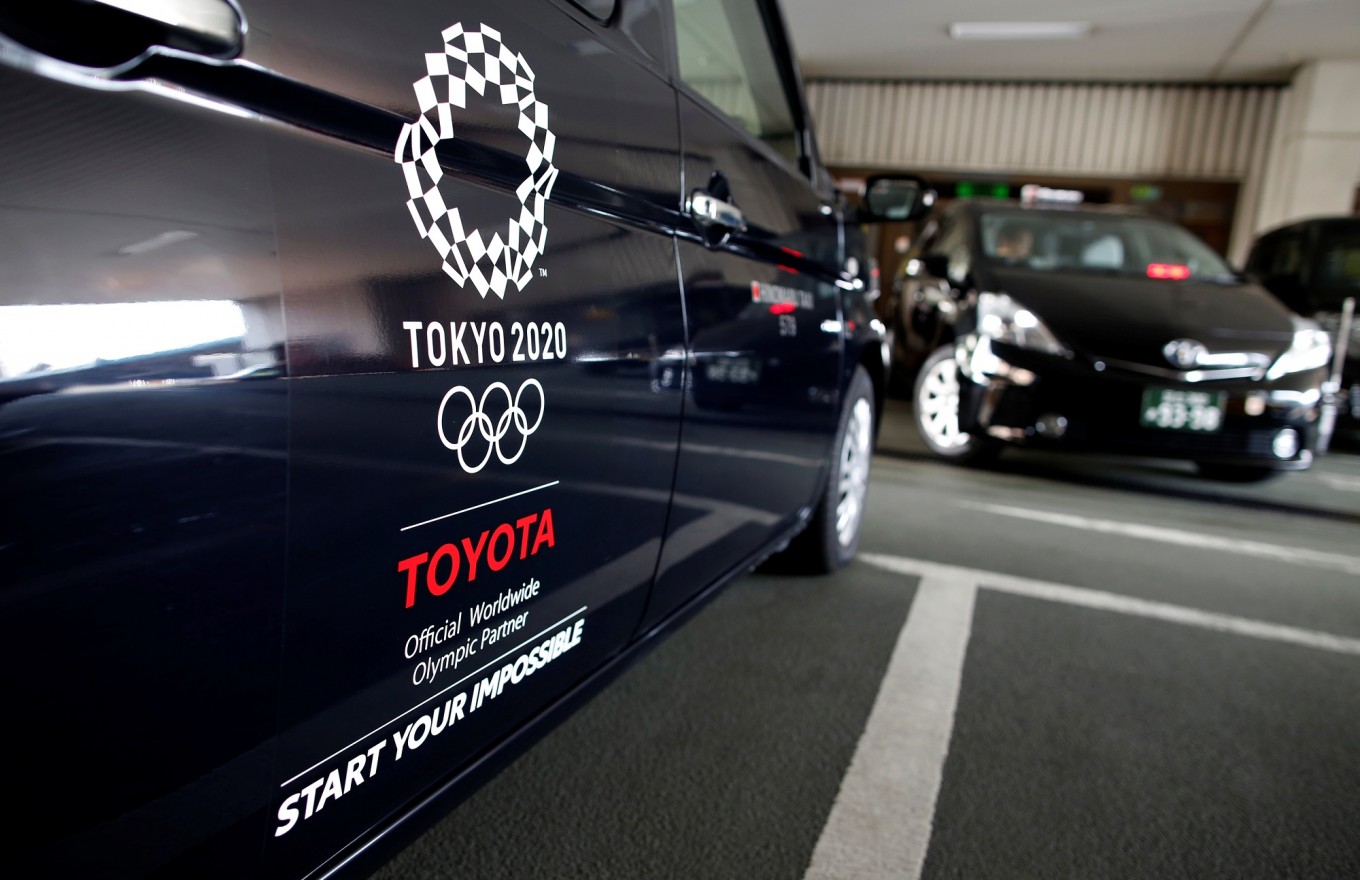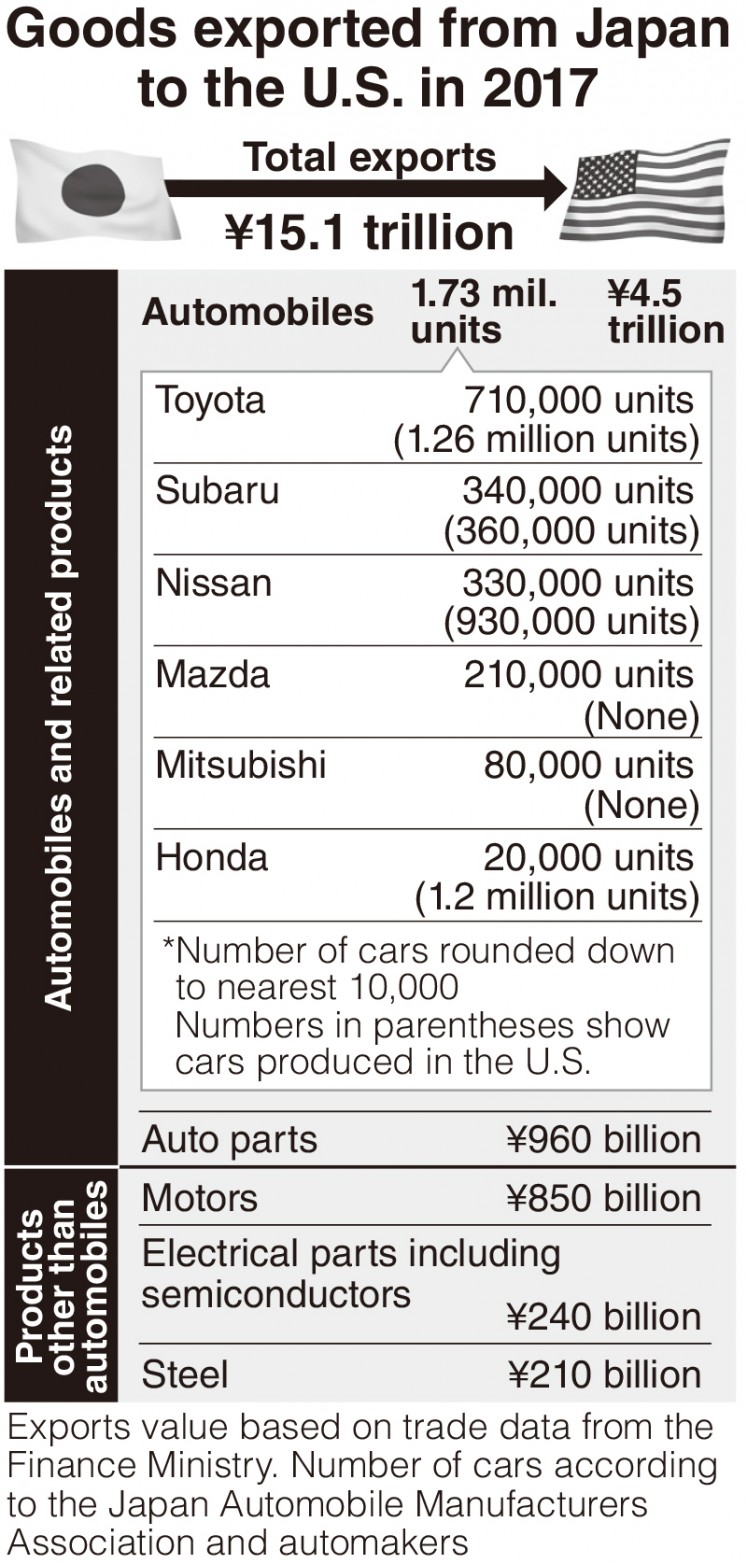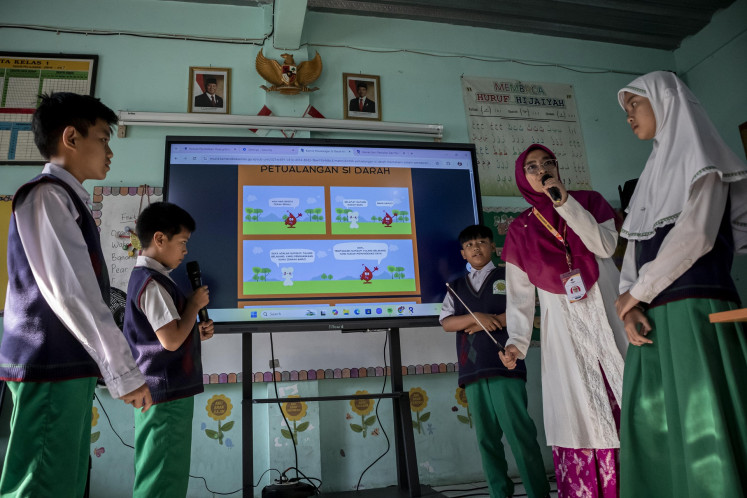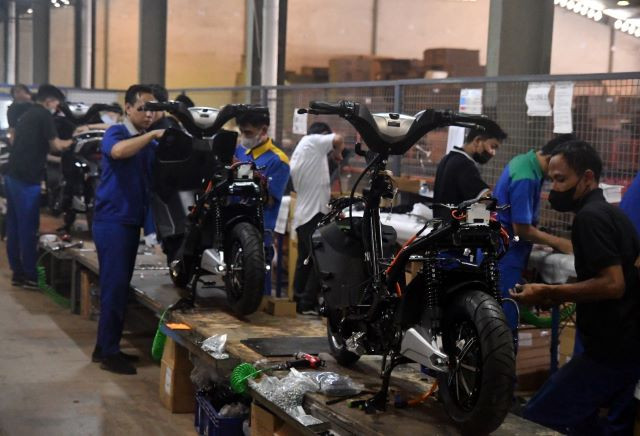Japan automakers alarmed by latest threat of massive US tariffs
Following the announcement by US President Donald Trump that his administration will launch an investigation into whether new tariffs are needed on imports of automobiles on the grounds of national security, Japan has been alarmed by the possible significant impact this would have on its auto industry. Strong opposition has also been voiced by other countries.
Change text size
Gift Premium Articles
to Anyone
 Toyota Motor Co.'s 'JPN Taxi' car is parked at a service branch of Hinomaru Kotsu Co. in Tokyo, Japan May 14, 2018. (Reuters/Issei Kato)
Toyota Motor Co.'s 'JPN Taxi' car is parked at a service branch of Hinomaru Kotsu Co. in Tokyo, Japan May 14, 2018. (Reuters/Issei Kato)
U
S news media have reported that the US government is considering new tariffs of up to 25 percent on imported automobiles. If the investigation, to be conducted based on Section 232 of the Trade Expansion Act of 1962, concludes such imports threaten national security, the United States will take measures to restrict auto imports, much like the measures implemented in March to limit steel and aluminum imports.
Automobiles account for about one-third of Japan’s total exports to the US, making it the largest category of exported items. Currently, the US imposes a 2.5 percent tariff on passenger cars from Japan. If the tariff rate is raised to any extent, even up to 25 percent, that would rapidly put the brakes on exporting Japanese automobiles and inevitably have a huge impact on the nation’s exports.
Trade statistics for 2017 released by the Finance Ministry show that automobile exports to the US totaled ¥4.5 trillion (US$41.15 billion). If ¥960 billion for auto parts is included, the export figure increases further. Japan’s steel products, which have been subjected to US import restrictions, make up 1.4 percent of the nation’s total exports. Those restrictions have a limited impact on the Japanese economy as a whole.
Data from the International Organization of Motor Vehicle Manufacturers shows that the number of automobiles sold in the USs was 17.8 million units in 2017, the second largest in the world after China with sales of 29.12 million units. According to the Japan Automobile Manufacturers Association, Japanese automakers produce 3.76 million units in the United States a year, but annual exports from Japan remain high at 1.73 million units.

Production shift eyed
At a press conference Thursday, Akio Mimura, chairman of the Japan Chamber of Commerce and Industry, expressed concern about the possible tariffs on automobiles, saying, “The impact will be huge worldwide.” Some European countries have criticized such a measure as a violation of World Trade Organization rules.
Yoshiaki Nishimura, chairman of Sumitomo Riko Co., which produces rubber and other products for automobiles, told reporters in Nagoya on Thursday, “Automobile production in Japan could fall nearly 20 percent.” He hinted at the possibility that the company might shift its production of some products from China to the US.
Meanwhile, automobile tariffs could also adversely affect US consumers. According to the US Commerce Department, imported automobiles account for 48 percent of total sales in the US. The American International Automobile Dealers Association, which comprises dealers of foreign vehicles, said in a statement Wednesday, “Tariffs are taxes.” It called the move an “economic disaster for American consumers, dealers and dealership employees.” The Trump administration must overcome opposition at home to impose new tariffs.
Bargaining chip
Trump apparently aims to win concessions from other countries by hinting at new tariffs on vehicle imports.
In renegotiations for the North American Free Trade Agreement, member countries initially aimed to reach an agreement in mid-May, but Mexico and Canada have voiced strong opposition over changes such as one to rules intended to boost production of goods in the United States. That has pushed the NAFTA talks into a deadlock. Trump’s move would also serve as a warning to the European Union, with which Washington is negotiating to reduce its trade deficit.
Japan is scheduled to start trade consultations with the United States in mid-June or later. A senior government official handling economic issues expressed concern, saying, “It’s possible that [Japan] could be brought into a similar situation [to NAFTA].” There is a possibility that Japan will be forced to open its markets in the agricultural and other sectors in return for the suspension of the US tariffs on automobiles.
In the case of steel and aluminum, the Trump administration launched an investigation in April 2017 and imposed the tariffs in March this year. Bargaining could last for a while.
This article appeared on The Japan News newspaper website, which is a member of Asia News Network and a media partner of The Jakarta Post









